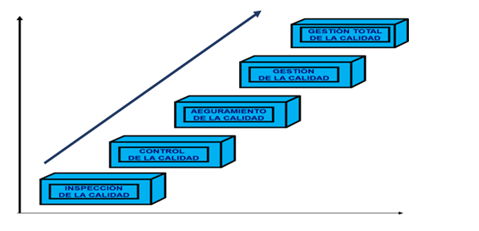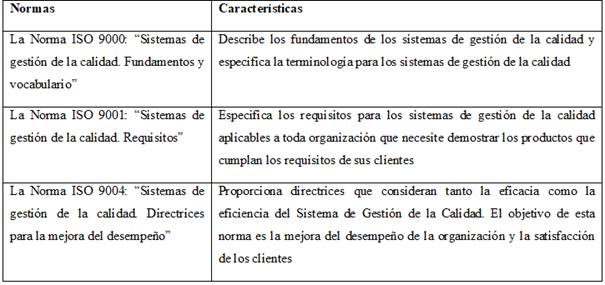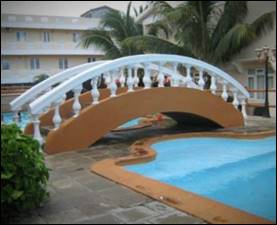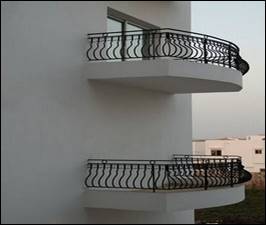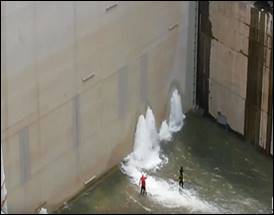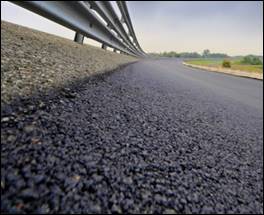Meu SciELO
Serviços Personalizados
Artigo
Indicadores
-
 Citado por SciELO
Citado por SciELO
Links relacionados
-
 Similares em
SciELO
Similares em
SciELO
Compartilhar
EduSol
versão On-line ISSN 1729-8091
EduSol vol.22 no.78 Guantánamo jan.-mar. 2022 Epub 11-Jan-2022
Articles
Theatrical workshops for the development of oral storytelling in primary school pupils
1Universidad Central “Marta Abreu” de Las Villas, Cuba.
The objective of this work was to design a study material that would favor the learning process of the Quality Management System in construction in Civil Engineering, since it was found that there were bibliographical insufficiencies that would facilitate it. Theoretical and empirical research methods were used to establish premises for the elaboration of the material and to provide the necessary technical knowledge on the subject. The material was submitted to the criteria of specialists, who considered its elaboration very necessary and evaluated its structure and content as very adequate, responding to the determination of the needs for which it was prepared.
Key words: Quality; Learning; Study material; Civil Engineering
Introduction
The training of competent and qualified professionals for the world of work is of vital importance in the educational processes promoted in each institution and territory and a current demand resulting from the uninterrupted growth of knowledge in the different branches of knowledge, as a key objective of the social development of each country. This requires scientific, technical, pedagogical, educational and human resources to achieve quality levels in the training process.
In Cuba this maxim is a priority of the State, which is evidenced from the guidelines of the economic and social policy of the Party and the Revolution, which in its guideline 120 expresses that the State continues to advance in raising the quality of the educational process; that the teaching staff, working conditions and the link with production must be addressed; where in itself the professional problems that the future professional must face are taken to the curricula (Communist Party of Cuba, 2017). In order to be consistent with the above, Cuban Higher Education has among its challenges the training of professionals with a higher level of knowledge, skills and modes of action in accordance with the socialist principles that govern our social process and the changes that are generated in the productive processes of enterprises. At the same time, it should play the role of source and promoter of scientific development so that it can train professionals not only in the technical applications that production demands, but also develop, through effective knowledge management, new knowledge and applications.
Particularly the training of new construction professionals, especially in the field of Civil Engineering, are not alien to these challenges and require educational processes that turn students into active protagonists of their learning with the ability to make efficient technological decisions, economically viable and environmentally preserving, being the task of the teacher to provide materials and teaching aids that promote the development of a more solid, prepared and efficient professional.
As part of the Study Plan D, the elective subject "Quality, Safety and Environment" is taught in the fourth year of the Civil Engineering career in order to facilitate decision making and improve the opportunities and positive effects of the projects, as well as to anticipate and manage the adverse impacts, potential risks, damages and benefits derived from them and their positive effects. Therefore, the preparation of its professionals in these contents is a requirement in order to contribute to the sustainability of infrastructure works.
From the experience of the authors participating in the teaching-learning process of the subject, in the fourth year of the Civil Engineering career of the Faculty of Construction of the Central University ¨Marta Abreu¨ of Las Villas, it has been found that there are deficiencies in the topic: "quality in construction" that limit the self-preparation of students in the development of tasks and the preparation of the same for the fulfillment of the proposed objectives.
The elements so far exposed justify the present research, in view of the existing bibliographical insufficiencies that limit the preparation process of the fourth year student of the Civil Engineering career in the optional subject mainly on the Quality Management System in the construction companies in Cuba. It limits, therefore, the knowledge and its practical application in the integrating projects, as well as in the training of the professional. This explains the need to propose a study material that favors the teaching-learning process in fourth year students of Civil Engineering in the optional subject on the Quality Management System in construction.
For the development of the research, the following specific objectives were also outlined:
To substantiate the theoretical assumptions that support the use of teaching means to facilitate the teaching-learning process on the study of the Quality Management System in construction companies in Cuba.
2. To diagnose the needs presented by the fourth year students of Civil Engineering in the teaching-learning process of the subject.
3. To elaborate a study material on the Quality Management System in Cuban construction companies that would favor their learning process.
4. To evaluate through the criteria of specialists the design, content and quality of the proposed study material.
Development
Methodology
In the pedagogical literature there are numerous works that address concepts, categories and principles of the teaching-learning process.
For Hector (2009), in the teaching-learning process:
There is a dialectical relationship between teacher and student, who are differentiated by their functions; the teacher must stimulate, direct and control learning in such a way that the student is an active, conscious participant in this process, that is, "to teach" and the student's activity is "to learn". (p.5)
This author places greater emphasis on the subjects involved in the process, while others define the terms "teaching" and "learning" in order to arrive at a common language. In this regard, Meneses (2007), in addressing the concept, expresses: "teaching can only be understood in relation to learning; and this reality relates not only to the processes linked to teaching, but also to those linked to learning" (p.32).
The authors of this paper agree with Meneses, considering that the teaching-learning process is the procedure through which special or general knowledge about a subject is transmitted, its dimensions in the phenomenon of academic performance based on the factors that determine its behavior in a given institution. But in order to enter into this complex process, we cannot ignore what this theoretical body has contributed to make a deep analysis of the educational practice, as an essential way to reach a greater conceptualization of the two key and reciprocal concepts that are teaching and learning.
The objectives of Study Plan D for the Civil Engineering career are to increase the quality of the graduate in order to meet the needs of society and improve the active and committed participation of construction professionals, particularly civil engineers. It states that there are a number of suggestions for elective/elective subjects in the degree program and includes a list of possible subjects to be taken (Ministry of Higher Education, 2013). The Centers of Higher Studies may decide to adopt them or replace them with others that are convenient, based on the regional interests that exist at any given time.
The optional subject: "Quality, Safety and Environment" is not in the list of possible subjects to be taken, but the Civil Engineering Department of the Central University "Marta Abreu" of Las Villas decided to include it because of the important construction processes developed in the region, as is the case of the North Key of Villa Clara and because it is state policy that each construction company should have a Quality Management System.
To guarantee success in the teaching-learning process of this elective course, self-learning is one of the essential aspects. That is why the pedagogical strategy to be used must be endowed with the use of a teaching medium that stimulates the student in the search for documents and information in digital format.
In the book Pedagogy, Babanski et al. (1981) states that the student behaves with the tendency to reproduce knowledge and not to reason his answers, has limitations in the generalization and application of knowledge, very few elaborate questions, the search for ways to learn and plan actions is limited, most of them focusing on the final answer without realizing the error and with few possibilities for critical and self-critical reflection of what he learns, which causes a limited development in his learning. This problem has a negative impact on the formation of a competent and qualified professional, which is why a constant improvement of Higher Education is required, and this is impossible without studying in depth the issue related to the teaching means involved in it.
In Higher Education there are already elaborated resources and materials, but some of them are not in accordance with their study plans, therefore they must be elaborated and designed by the professors or by the students themselves with direct or indirect participation. These materials can be oriented in the different organizational forms of teaching activities such as conferences, seminars, etc.; creating materials with productive and efficient designs in technical and theoretical contents of a certain subject and that the university demands to improve the educational teaching process.
In order to develop the present work, a mixed methodology is used, which plays a decisive role in the pedagogical field, especially when there is an evident intention of the researchers to give voice to the participants; in that sense, when not only the obtaining of numerical data is desired, but also the most intimate vision of the participant is sought and the qualitative data become more relevant.
It is important to emphasize that this article carries out a thorough work regarding the integration of data in search of unity, which facilitates a better understanding of its subject of study. In this process, the resource of triangulation is extremely valuable; therefore, in the particular case of the experience developed, it should emphasize theory, methods and techniques and data collection instruments.
Research scenario. Population and sample
The research scenario is the Construction Faculty of the Central University "Marta Abreu" of Las Villas.
The target population for the needs assessment is the 78 fifth year students of Civil Engineering of the Construction Faculty of the Central University "Marta Abreu" of Las Villas. To select the sample, a non-probabilistic intentional sampling is used, a group of 30 fifth year students of the Civil Engineering career who received the optional subject: "Quality, Safety and Environment" and 5 professors with different years of experience who teach in the Faculty of Construction.
Results and discussion
Once the instruments were applied to the selected sample the results to the students were:
Of the students interviewed, 60% stated that they were always satisfied with the knowledge obtained in the classroom on the different topics of the elective course: "Quality, Safety and Environment", while the remaining 40% said that they were only sometimes satisfied.
2. For 86% of the students the topic of quality in construction was the longest and most complex of the subject while the remaining 14% stated that it was never that one.
3.a). 50% of the students analyzed claimed that the seminars and the final work always allowed them to deepen the contents already received in class, while the other 50% stated that this only happened sometimes.
3.b). 43.3% of the students examined indicated that the seminars and the final paper always allowed them to expand on content that had not been covered in class, while the other 56.7% of the sample said that this happened only sometimes.
4. 100% of the sample agrees that there was never a basic textbook for the study of the subject.
5. Of the students taken into account, 10% ratify that they always had sufficient reference materials at their disposal in the Quality Management System, most of them affirm that this never happened with 73.3% and the remaining 16.7% of the sample emphasized that this sometimes happened.
6. Sixty percent of the interviewed always consulted bibliography on the topic Quality Management System in the library and the remaining 40% only did so sometimes.
7. 100% of the sample agrees that it would always be favorable to have an updated "Study material" for the subject on the most extensive and complex topic and that it would also serve as a complementary text, supporting the completion of independent work.
In addition, some of the elements that the students considered necessary to improve their preparation and/or self-preparation on the subject of quality in construction and that need to be included in the structure of the material to be designed are: benefits and importance of using a Quality Management System, laws and standards on quality, evolutionary and historical process of quality and images of quality defects in construction works.
In relation to the interview made to the professors, 100% of them state that it is necessary to teach the optional subject: "Quality, Safety and Environment" in the Civil Engineering career, for the training of future construction professionals due to the important construction processes developed in the region, as it is the case of the North Key of Villa Clara and because it is state policy that each construction company should have a Quality Management System. They also express that the subjects taught in this course are of vital importance in the execution of construction projects and that all professionals should be governed by these criteria.
100% of the teachers interviewed are of the opinion that the students do not have the necessary tools to deal with the Quality Management System and its use in construction companies in Cuba.
80% of the interviewed consider that the bibliography available to students on the subject of quality in construction works is not sufficiently updated and express that, despite having documents of the last years, they are data and reports that are rather given in postgraduate courses. On the other hand, the remaining 20% believe that the bibliography is up to date but is dispersed.
100% of the interviewed professors agree that the elaboration of a study material on the Quality Management System and its use in construction companies would lead to a better assimilation of the contents by the students, so they affirm that such elaboration is very necessary. Among their main arguments are:
The Study Material would help in the independent study and preparation of the student.
It would facilitate the work of specialist or non-specialist teachers in the subject and it would exemplify how quality contributes to the whole life cycle of a construction process.
Study material developed
A study material is a very effective means to facilitate the work of the teacher and the self-preparation of the students, since they compile the most updated contents of the same, favoring the development of the teaching-learning process.
The main objective of the study material is to compile updated information on the dispersed content of the Quality Management System during the life cycle of a construction project and considering the particularities of construction companies. Its design was based on the psychological and pedagogical foundations related to the teaching means and the results of the techniques applied to teachers and students, the topics of the subject and the objectives of the Integrating Project PI 4. It offers a satisfactory answer to the problem of self-learning and independent study, so its content should achieve the following functions:
To provide elements that allow a greater motivation of the students towards the contents of the subject to be covered.
■ To increase learning and achieve a greater fixation of the contents.
■ Facilitate the independent work of the students based on the contents offered by the Study Material.
■ To favor the linking of theory with practice.
The study material bases its chapters on the topic of quality in construction, since it is the most complex and extensive of the elective subject: "Quality, Safety and Environment", which is taught in the fourth year of the Civil Engineering course, and its didactic structure is composed of a cover sheet, a prologue, a table of contents, an introduction, chapters, a glossary and a bibliography. The main topics will be presented below, regardless of the chapters where they are located.
In topic 1, "Historical Background of Quality", it can be seen how quality has gone through several stages until reaching Total Quality Management, which is a philosophy that promotes continuous improvement in each organization and the involvement of all its members, focusing on the satisfaction of both the internal and external customer (Figure 1).
"The key to effective work is to devise a way to understand and serve the customer, enabling employees to enjoy a successful work life" (Crosby, 1994, p.275). That is why theme 2 is called "Quality as a Management Process" and works with the main classical authors of quality to justify how Quality Management is both a strategy and a process and how its full legitimization will be achieved when its management philosophy permeates the administration and its regulations are fully understood.
Based on the above, topic 3 entitled "Normative Models of Quality Management: ISO 9000 Standards" is created, which establishes that standardization is the use of important normative models for a correct practice of quality assurance.
The International Organization for Standardization (ISO) is a worldwide federation of national standards bodies (which are all ISO member bodies). The work of preparing international standards is carried out by ISO technical committees. The undeniable importance of this standard derives, substantially, from the fact that it represents a pioneering initiative in international standardization, with which the terminology in this sector is unified in Spanish.
The ISO 9000 Standards cited in Table 1 have been developed to assist organizations of all types and sizes in the implementation and operation of effective quality management systems.
Topic 4 of the Study Material called "Business Improvement of the Quality Management System" provides the tools to work on the main processes of planning, control and improvement of quality in companies.
"Quality in the Construction Industry" is called the fifth topic of the didactic material and argues how the points covered in the previous topics such as Quality Management and Total Quality in the construction sphere are established. In this epigraph it is defined what is the cost of non-quality which is also known as "price of non-compliance". It establishes the types of errors that affect quality, such as technical factors, management and organizational factors and human factors.
As the other main heading addressed and the most important of all is topic 6 entitled "Quality in a Construction Project" where the implementation, updating and compliance of quality in each work or project has been indicated regardless of the status of the implementation of the Quality Management System in the construction companies. Where required, specific documents have been developed for certain works or projects.
Currently in the tourism industry many construction mistakes are made that affect the quality and the landscape view of the clients instead of improving it (Figure 2 and 3) and on the other hand large projects can fail if they do not comply with the technical specifications of the plans in AutoCAD format or other computer programs (Figure 4). In addition, we can also see errors in road projects when the quality of the materials provided by the suppliers is not ideal and causes defects and a decrease in the useful life of the roads (Figure 5). This is why it is important to realize that an incorrect control or monitoring of quality in a construction project will cause unfavorable situations and, sometimes, permanent damage to the environment or to the people themselves.
In all cases, for the successful construction or execution of the work with adequate quality, special care is required in the "integration" of all the necessary actions so that the final result (construction project) fulfills the purpose for which it was designed, on time and with the costs foreseen in a timely manner.
Each chapter has self-checking questions that include the main topics addressed so that the student, after a detailed analysis of the study material, can answer them correctly. There is also a glossary to familiarize students with unfamiliar terminology such as: benchmarking, turnkey, continuous improvement, etc.
Evaluation of the study material by specialist criteria
A total of 5 specialists were interviewed for the evaluation of the study material. For the selection, the following criteria were taken into account: adequate knowledge of the objective to be evaluated, 5 or more years of accumulated personal experience in the topics to be addressed, professional prestige in the work they perform and a broad link with teaching, supported by the results of scientific work and responsibility. Two of them are professors of the Faculty of Construction of the UCLV who have carried out several works on quality in construction works, other two specialists of construction companies of Villa Clara such as Hydraulic Projects Research Company (EIPH) and EMPROY. The fifth specialist was a CUJAE professor with more than 30 years of experience in the field.
The results of the evaluation of the specialists were satisfactory, all of them agreed that the study material meets the main educational requirements outlined at the beginning of the research, since according to them, the material is strictly adjusted to the contents of the Program of the optional subject in the topic: Quality Management System. There is coincidence in the appraisals of the specialists about the pertinence, feasibility and quality of the study material to support the teaching-learning process of the course, and they also consider the proposal to be novel and applicable.
Application in the teaching and learning process
Once the evaluation of the specialists was completed, the study material began to be introduced in the teaching-learning process of the optional subject, and it became evident that:
Develops skills in the search for knowledge independently.
It favors the updating of contents in a faster way.
Facilitates individual search that stimulates the research spirit of students.
In addition, three fundamental periods can be established for effective work with the material: before, during and after the class. This has served as a starting point for further research and the identification of needs in other subjects of the career in order to form a competent and qualified professional.
Conclusiones
The theoretical and methodological foundations of the research show the importance of the teaching means to facilitate learning in fourth year students of Civil Engineering in the optional subject on the study of the Quality Management System in construction companies in Cuba, considering the pedagogical and psychological foundations that stimulate self-learning and the search for information as characteristics of this professional pedagogical process.
With the application of the different instruments and methods used for the diagnosis of needs in the educational scenario, it was found that the students who received the optional subject: "Quality, Safety and Environment", presented limitations for the elaboration of proposals of a Quality Management System in the Integrating Project No.4 (PI-4) because they lacked adequate bibliographic means that would make possible the study of these management areas.
The study material elaborated on the Quality Management System in Cuban construction companies has a logical order and an adequate didactic structure, with models, photos, self-control questions and updated information, which makes it possible to increase learning and achieve a better fixation of the contents approached.
The evaluation of the design, content and quality of the proposed study material by specialists' criteria, corroborates that it fits the contents of the program of the optional subject: "Quality, Safety and Environment", in the training of the civil engineer and contributes to the identification of errors in the quality of the works during the life cycle of the construction projects according to the requirements of the professional's model.
Referencias bibliográficas
Babanski, D.; Elkonin, D.; Gunther, K. H.; Piskuno, G.; Neuner, G. (1981). Pedagogía. Pueblo y Educación. [ Links ]
Crosby, P. B. (1994). Completeness (plenitud): calidad para el siglo XXI. México: McGraw-Hill/Interamericana de México. [ Links ]
Partido Comunista de Cuba (2017). Lineamientos de la Política Económica y Social del Partido y la Revolución para el período 2016-2021. http://www.pcc.cu/ [ Links ]
Hector, K. (2009). Plataforma para el control del uso de Softwares educativos. http://www.eumed.net/ [ Links ]
Meneses, G. (2007). El proceso de enseñanza-aprendizaje: el acto didáctico. NTIC, Interacción y aprendizaje en la Universidad, 1(1), p.31-65. [ Links ]
Ministerio de Educación Superior. (2013). Plan de estudio D carrera ingeniería civil perfeccionado. http://www.mes.gob.cu/ [ Links ]
Received: May 08, 2021; Accepted: October 15, 2021











 texto em
texto em 

